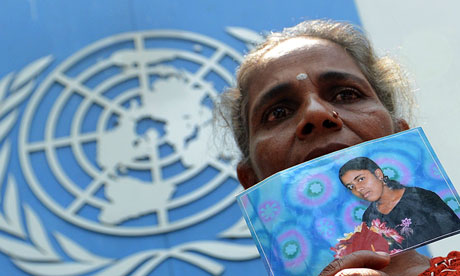By Irving Feng
Impunity Watch Reporter, Asia
MEIKHTILA, Myanmar – Myanmar declared a state of emergency on Friday and imposed martial law in four districts, including the city of Meikhtila, after violence broke out between Buddhists and Muslims.
A police report said the clash between the two religious groups started after a Buddhist couple had an argument with a Muslim gold shop owner. The argument took a turn for the worse and sparked an eruption of violence involving hundreds of people.
At least twenty people have been killed so far and dozens more have been wounded. One of the casualties was a Buddhist monk. Thousands of other bystanders have been displaced from their homes due to the conflict and two camps have been set up to house the victims.
Mobs of Buddhists marched through Meikhtila’s Muslim districts with torches burning down Muslim homes and other establishments. Myanmar’s state run television reported mosques burning in Yamethin along with 50 more homes. Mosques and other Muslim buildings in Lewei and Naypyitaw were also set on fire.
Local residents in the affected cities and districts had complained that there were not enough local police forces to quell the unrest. Myanmar President Thein Sein sent in national military forces to take charge of security. An overnight curfew was also imposed to improve safety for the citizens.
Ethnic and religious tensions had been simmering underneath the surface of Myanmar’s communities during 49 years of military rule which ceased in March of 2011. The military rule had quashed all dissent and kept conflicts in check. The fledgling democracy is now challenged with the task of unifying one of Asia’s most ethnically diverse countries.
Myanmar is largely Buddhist; however, roughly 5 percent of the 60 million residents are Muslim. Historically, there are well established and long standing Muslims communities in Yangon and Mandalay, two of Myanmar’s largest cities.
This most recent outbreak of violence is similar to the conflict between Rahkine Buddhists and Muslim Rohingya last year in western Myanmar that affected and displaced more than 100,000 residents. Human rights groups had warned that the western conflict could spread to other parts of the country.
In a separate incident last year, Buddhist monks held rallies against Muslims in the central part of Myanmar near the city of Mandalay. The current conflict is described by locals as “unpredictable and dangerous.”
Many residents of Meikhtila, where the fighting was the worse, do not feel safe in their own communities. An estimated 6000 residents have already fled their homes, including 1200 Muslims and have taken refuge at a police station and a large event stadium.
For further information, please see:
Charlotte Observer – Buddhists-Muslims violence spreads in Myanmar – 24 March 2013
Tulsa World News – Sectarian violence kills 20 in Myanmar; state of emergency declared – 23 March 2013
Reuters – Myanmar riots stoke fears of widening sectarian violence – 22 March 2013
Daily Mail – Myanmar riots stoke fears of widening sectarian violence – 21 March 2013



